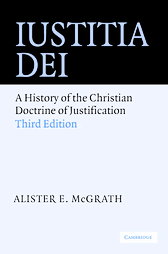
Although there can be little doubt that the Reformed doctrine of election continued to be widely held, particularly within Puritan circles, increasing opposition to the doctrine, largely from academic sources, was evident in the early seventeenth century. Thus Richard Hooker at Oxford, and Launcelot Andrewes at Cambridge, developed an 'Arminianism before Arminius', which received considerable impetus through the influence of William Laud, subsequently translated to Canterbury. Like Vincent of Lerins, Andrewes declined to support the latest continental speculation on predestination precisely because he felt it to be an evident innovation. The Arminianism of the leading divines of the period -- and the intense hostility towards them from Puritans -- is perhaps best illustrated from the controversy surrounding the publication of Henry Hammond's Practical Catechism in 1644. This work may be regarded as a classic statement of the soteriological convictions of the Laudian party, asserting unequivocally that Christ died for all men. This view was variously described by his opponents: Cheynell accused him of subscribing to the doctrine of universal salvation; others charged him with Arminianism. The response of Charles Barksdale to this latter charge is particularly significant:
"You are mistaken when you think the Doctrine of Universall Redemption Arminianisme. It was the Doctrine of the Church of England before Arminius was borne. We learne it out of the old Church-Catechisme. I believe in Iesus Christ, Who hath redeemed mee and all mankind. And the Church hath learned it out of the plaine Scripture, where Christ is the Lamb of God that taketh away the sinnes of the world."
In this, Barksdale must be regarded as substantially correct. The Bezan doctrine of limited atonement was somewhat late in arriving in England, by which time the older Melanchthonian view had become incorporated into the confessional material of the English national church -- such as the catechism of 1549. This evidently poses a nice problem in relation to terminology: should one style men such as Peter Baro (d. 1599) as an 'Arminian avant la lettre', or accept that their teaching was typical of the period before the Arminian controversy brought the matter to a head and a new theological term into existence? Most Anglican divines in the late sixteenth and early seventeenth centuries appear to have based their soteriology on the dialectic between universal redemption and universal salvation, declining to accept the Bezan solution of their Puritan opponents...
--Iustitia Dei, p. 293-294.

No comments:
Post a Comment